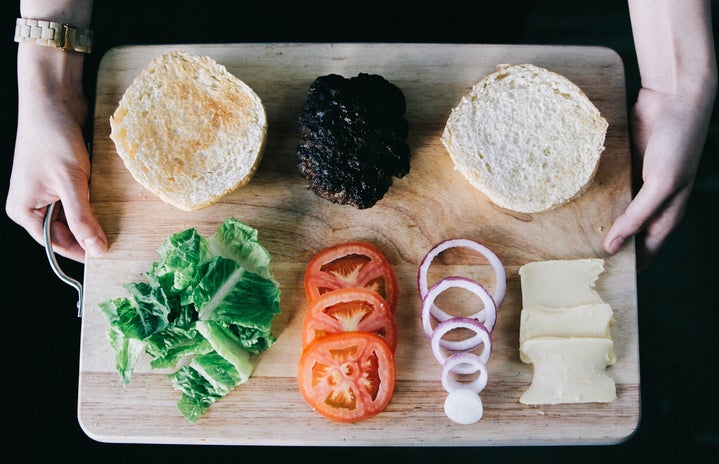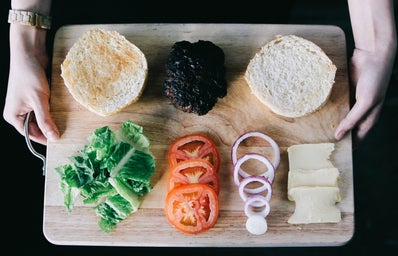Although Thanksgiving is over, the holiday feasting has just begun.
As mentioned in last week’s article about green gift giving, Americans produce approximately 25% more waste during the holiday season than they do the rest of the year, and a lot of that waste comes from food.
But why, you may ask, is food waste so detrimental? After all, it is compostable.
Well, kind of.
Most of the food that is thrown out ends up in the landfill where it decomposes without oxygen. Without oxygen, the process that unfolds as the food decomposes produces methane, a greenhouse gas that is 21 times more harmful to the atmosphere than carbon dioxide. So, the more food that is thrown in the landfill, the more methane produced, the warmer our atmosphere gets, and the more damaged the ozone layer becomes.
In addition, when we waste food, we are also wasting the resources that were used to grow the food, such as water. For example, to produce one single hamburger, it takes 660 gallons of water. Most of Americans’ food waste comes from meat, so 33% of the water used to produce that meat ends up in the landfill. That’s water we can’t afford to waste.
And, if you aren’t sold on the environmental impacts of food waste, think about all the money you are wasting. Americans throw out $218 billion worth of food each year, which amounts to about $1,800 per family of four. And for college students on a budget, we want to save every penny we can get.
What do we do about it?
The answer starts at the grocery store. When planning out big dinners (or your own dinners), try to guess how much food will be eaten as accurately as possible. How many people will you have there? Who is going to eat what? How many leftovers do you want/need? Do you really need four different desserts, or will one or two suffice?
Once you have a general idea of what and how much food to make, create a grocery list, then stick to it. Even if those Winter Oreos look super festive, ask yourself if you really need them. Or, more importantly, will they get eaten? If the answer is no to one of those questions, leave the food on the shelf.
When at the store, also try to find food that is locally grown. This is a bit more difficult in a small Michigan town like Mount Pleasant, but check your hometown or nearby cities for winter markets. Greentree is also a good option here in Mount Pleasant that is dedicated to locally grown, organic, and ethically produced goods.
At the cooking stage, don’t throw out all the scraps! Often things we think can’t be used, like the stems of broccoli or leftover bread, can be used in other recipes such as vegetable stock or even bread pudding! This pertains to scraps leftover after feasting as well.
Speaking of leftover scraps, save your other leftovers too! Use clean food containers to send leftovers home with friends and family or store some in the freezer to eat when you aren’t so sick of holiday food (like when you come back to college for the new semester). You can also use leftovers to make some neat new recipes, such as casseroles or sandwiches (or if you still have some turkey left, check out some of these neat recipes).
When it comes to eating, try to avoid using disposable dinnerware and cutlery. Instead, ask some friends or family to help with the dishes. If disposables are absolutely necessary, try to find products with high recycled content or “BioWare” that is made of biodegradable materials. Further, consider opting for smaller plates. This way, people will be less likely to overload their plates and will clean them rather than wasting half of them. You could even make it a game – whoever cleans their plate completely gets a prize (free hot cocoa maybe?).
Finally, try to avoid buying single-serving containers and consider food alternatives. Instead, opt for bulk items, like a large, refillable Brita filter and glasses rather than plastic water bottles.
For even more ideas on how to cut your holiday food waste, check out this article on reducing food waste, another from World Wildlife Fund, and, of course, Vanderbilt’s Sustainable Holiday Greening Guide.
Happy cooking!


